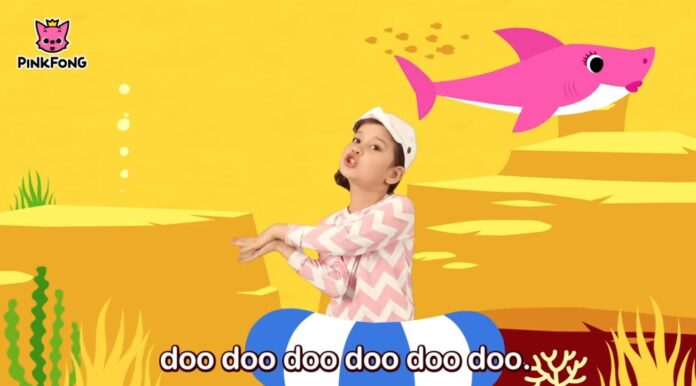It’s YouTube’s most-viewed video of all time with over 16 billion plays, and it’s racked up a further 1 billion+ streams on Spotify.
But Pinkfong’s Baby Shark, released in 2015, did not plagiarize an earlier version of the song recorded by US songwriter Jonathan Wright, South Korea’s Supreme Court ruled today (August 14).
The court rejected Wright’s copyright dispute over the viral children’s track, determining that his 2011 version of the folk song – yes, it’s a folk song – could not be considered a “creative work” because (i) prior versions already existed and (ii) Wright did not add sufficient new creativity to merit copyright protection.
“The plaintiff’s song is difficult to be protected as a secondary copyrighted work because it did not reach a substantial alteration to the extent where it could be considered as a separate work, by social norms, from the oral song mentioned in this case,” the court stated, affirming an earlier lower court decision.
That will be music to the ears of Seoul-based Pinkfong, which reported 45.1 billion won ($32.6 million) in revenue during the first half of 2025.
(Sony likely won’t hate it, either: Sony Music Publishing signed an agreement with Pinkfong in November 2020 to publish its entire catalog of children’s songs, including Baby Shark; Pinkfong has previously also signed a deal with Sony’s The Orchard/Relentless to distribute its records.)
The success of Pinkfong’s Baby Shark Dance video on YouTube, released ten years ago, has spawned a lucrative multimedia franchise.
Said franchise now spans TV shows, movies, smartphone apps, and even touring musicals, featuring characters Baby Shark, Mama Shark, Papa Shark, Grandma Shark, and – how could we forget? – Grandpa Shark.
Pinkfong said in a statement to the Associated Press that the ruling confirmed its version of Baby Shark was based on a “traditional singalong chant” that was in the public domain.
The company said it gave the tune a fresh twist by adding “an upbeat rhythm and catchy melody, turning it into the pop culture icon it is today.”
Jonathan Wright, who performs under the name Johnny Only, had sought 30 million won (USD $21,600) in compensation, claiming Pinkfong’s version was “substantially similar” to his YouTube upload from 2011.
Wright argued that both songs shared “same key, same tempo change, same melody and rhythm.”
Wright’s South Korean attorney, Chong Kyong-sok, called the outcome of the case “a little disappointing” but confirmed the matter was now settled.
“It’s our work that came out first, so we can handle the licensing on our side and I guess we then each go our separate ways,” he said, according to reports.
The case centered on whether Wright’s version qualified as a “secondary work” of the original folk song and whether Pinkfong had subsequently based their version on his work.
The Supreme Court determined that Wright had not made sufficient changes to the original song to grant him copyright as a secondary work, and found “no substantial similarities” between his version and Pinkfong’s.
The ruling highlights the complex copyright issues surrounding folk songs and traditional melodies in the digital age.
Various versions of Baby Shark existed before Wright’s 2011 upload, including a German version called Kleiner Hai that gained traction in Europe in 2010.
The song has roots as a traditional melody used at children’s summer camps in the United States for years before either Wright’s or Pinkfong’s versions.
Wright’s legal challenge began in 2019 after Pinkfong’s version captured global attention, sparking social media phenomena like the #BabySharkChallenge and reaching No. 32 on the Billboard Hot 100 chart.
Today’s decision echoes similar high-profile copyright disputes over folk songs, including the 2015 case that removed Happy Birthday to You from Warner Chappell copyright claims after a federal judge ruled the publisher’s rights applied only to a specific piano arrangement rather than the underlying melody and lyrics.Music Business Worldwide


